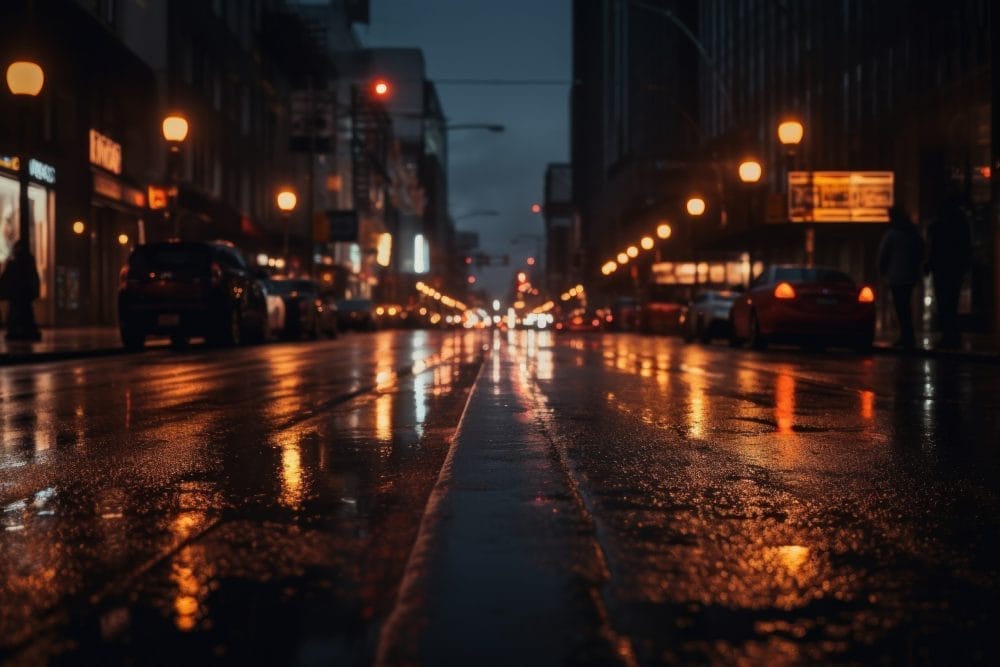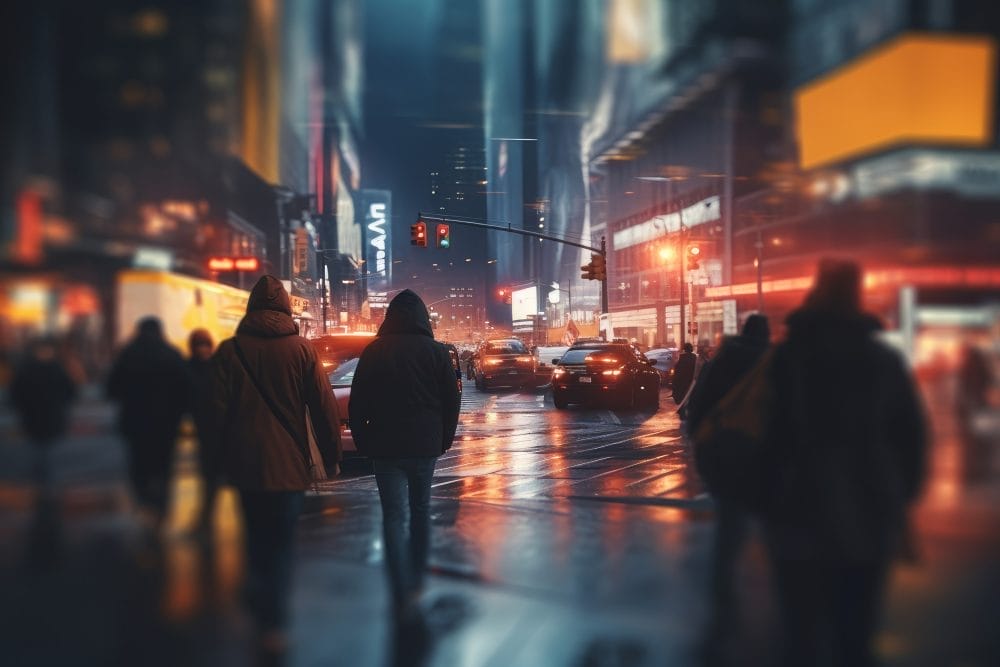Night walks feel peaceful—quiet streets, cooler air, maybe even a sky full of stars. But this calm can be deceptive. When visibility drops, awareness often slips too, leading to safety mistakes that might seem harmless until it’s too late.
Many of these mistakes are so subtle that they go unnoticed, but they can put anyone at risk without warning. Spotting them early can be the difference between a safe stroll and a dangerous encounter.
1. Forgetting to Make Yourself Visible
When streetlights are dim or spaced far apart, it’s easy for drivers, cyclists, or even other pedestrians to miss you entirely. Dark clothing blends with the night, turning you into a moving shadow. Without reflective details or a small light source, you disappear into the background. This invisibility can mean drivers don’t notice you until they’re dangerously close. A single reflective strip or clip-on light can shift the odds in your favor.
2. Using Both Earbuds at Full Volume
Music and podcasts might make a walk feel shorter, but they also muffle the world around you. Important sounds—like approaching footsteps, a car accelerating, or someone calling out—vanish beneath the audio. Complete audio isolation limits your ability to detect danger before you see it. Even in safe-looking areas, awareness is your first defense. Lowering the volume or using only one earbud keeps your senses sharper.
3. Taking the Same Route Every Time
Predictability can be comforting, but it also makes your movements easy to track. Someone with bad intentions only needs to notice your schedule once or twice to figure out where you’ll be. Walking the exact same streets at the exact same time creates patterns that work against you. Slight changes in timing or route can break predictability without major inconvenience. Unpredictability is a quiet but powerful safety tool.
4. Staring at the Phone Instead of the Street
A glowing screen draws the eyes in, making it tempting to scroll between steps. This habit reduces situational awareness to almost zero. Obstacles, uneven pavement, or people nearby can go unnoticed until the last moment. The distraction also signals vulnerability, which some may see as an opportunity. Pausing to check the phone in a safe, well-lit area keeps you in control.
5. Ignoring the Gut Feeling to Cross the Street
The mind picks up on subtle threats before conscious thought kicks in—this is instinct. Dismissing that uneasy feeling out of politeness or overthinking can be costly. If someone’s pace, body language, or proximity feels off, distance is protection. Crossing the street or changing direction is a small action with big safety benefits. Trusting instinct is not paranoia—it’s survival intelligence.
6. Walking Too Close to Concealed Areas
Shadows and hidden corners are perfect cover for anyone wanting to stay unseen. Hugging the edges of buildings or cutting through alleys might feel faster, but it limits visibility. Staying in open, well-lit spaces reduces the chance of unpleasant surprises. When shadows can hide entire people, even a few extra feet of distance helps. Strategic positioning makes it harder for someone to approach undetected.
7. Overestimating the Safety of “Familiar” Neighborhoods
A street that feels safe during the day can change completely after sundown. Familiarity creates false confidence, leading to relaxed vigilance. Nighttime brings fewer witnesses, fewer open businesses, and more hidden spots. Criminal activity often increases where people assume they’re safe and let their guard down. Treating all nighttime walks with the same level of caution levels the playing field.
Walk Smart, Stay Safe
Night walks don’t have to be risky—they can be both enjoyable and secure with the right awareness. Small, intentional changes in habits can prevent big problems later. These subtle mistakes often slip under the radar until something goes wrong, but noticing them now creates safer routines. The streets will always hold an element of unpredictability, but your choices can tip the scales in your favor.
What’s the one safety habit you swear by when walking at night? Share your thoughts in the comments.
Read More
10 Public Safety Programs That Are Failing Where It Matters Most
7 Safety Apps That Give a False Sense of Security






